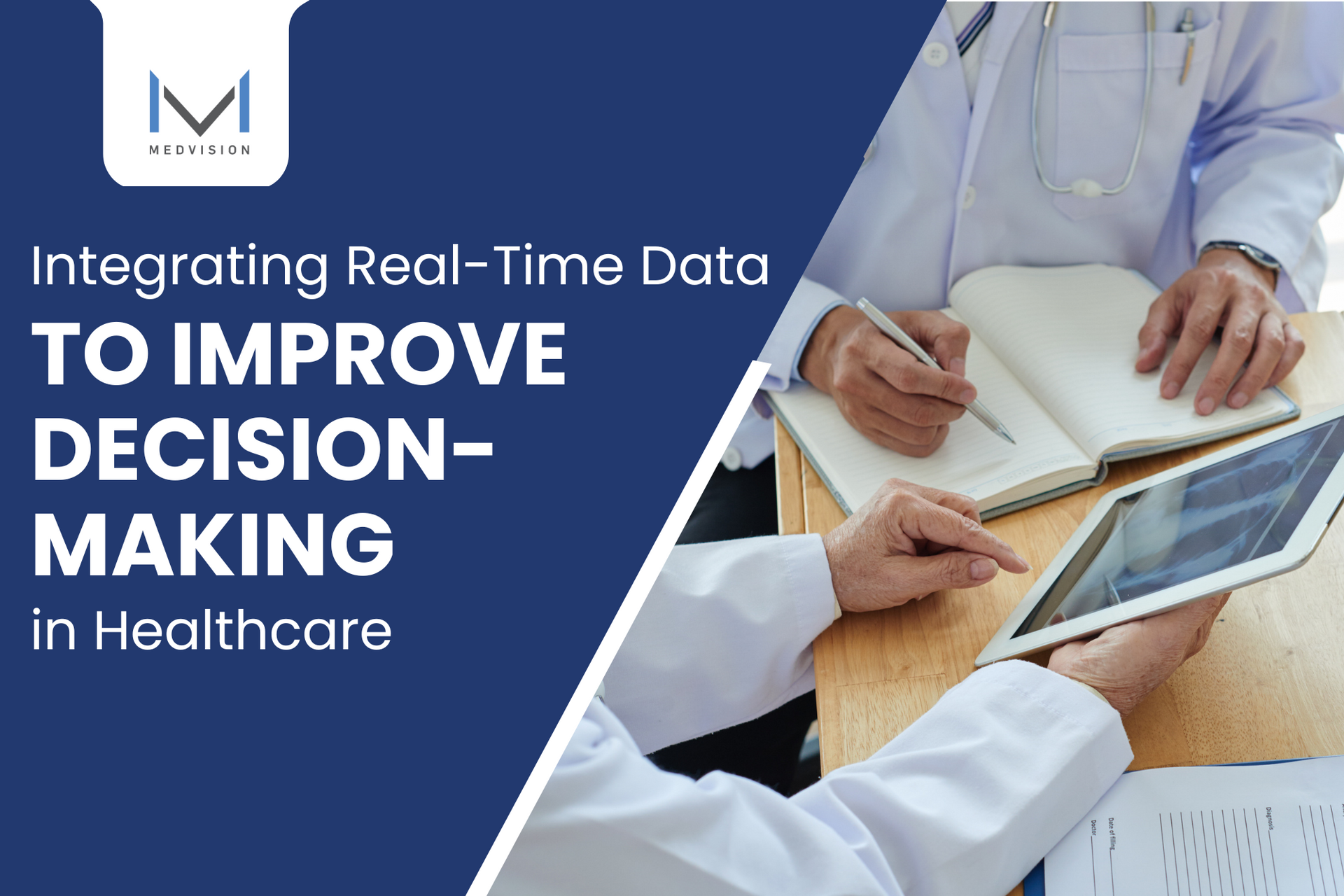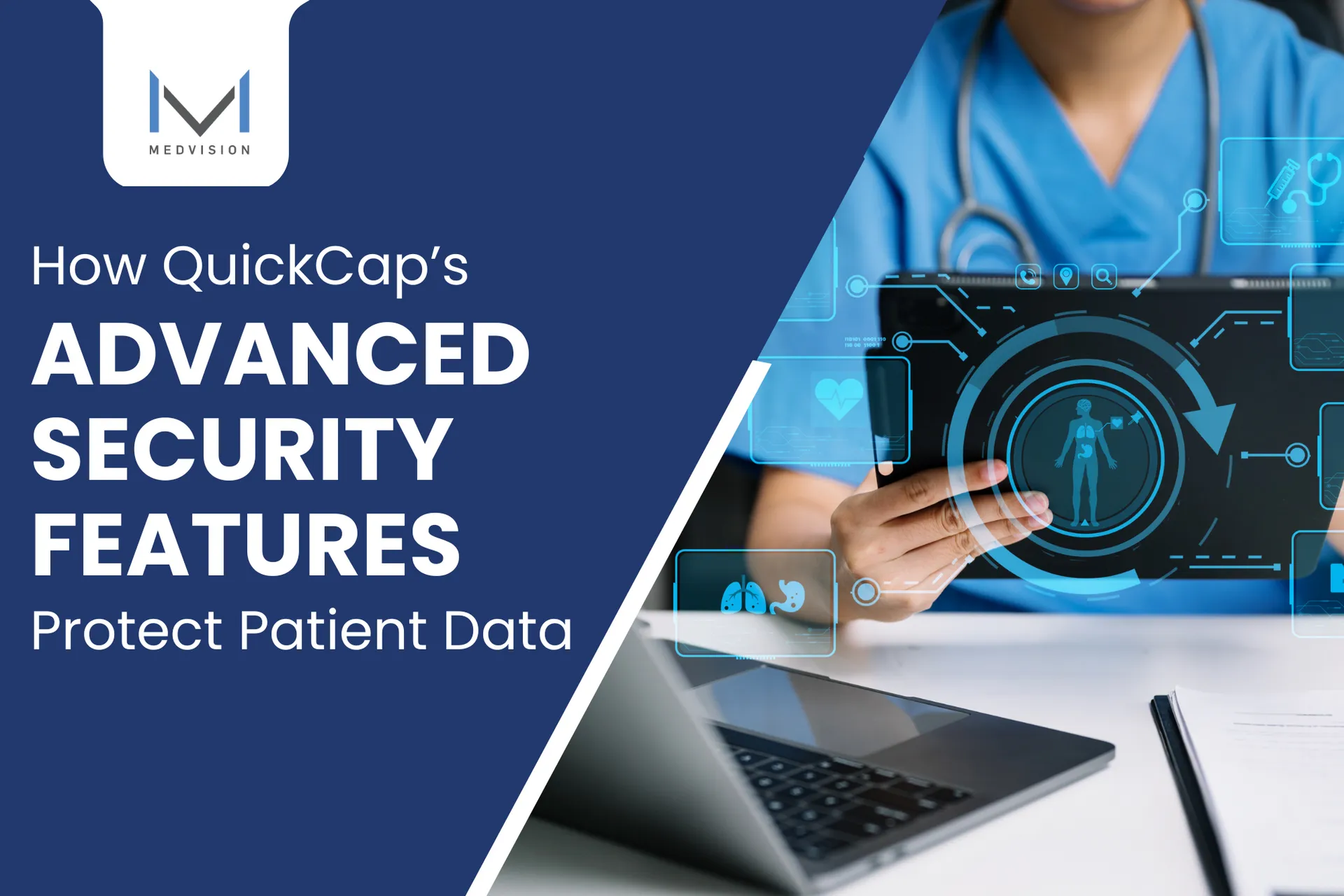Harness the Power of Data Analytics for Proactive Care Management
What if medical care could anticipate and prevent health issues, saving lives and money? This is the promise of proactive care management. Instead of waiting for problems to arise, proactive care focuses on preventing issues before they start. This approach not only improves patient health but also reduces healthcare costs.
Data analytics plays a crucial role in efficiently enhancing proactive care management. By analyzing information from sources like electronic health records and intelligent medical devices, healthcare providers can gain valuable insights to make more informed decisions and provide better care.
At MedVision, we prioritize proactive care management because we believe in the power of prevention to enhance patients' health and well-being while supporting healthcare providers in delivering exceptional care. Our innovative solutions harness the power of data analytics to provide healthcare providers with the tools they need to anticipate health issues and intervene early.
Trust MedVision to Empower Your Care Delivery
Join us as we explore the transformative impact of data analytics on proactive care management and discover how it can revolutionize healthcare delivery.
What is Data Analytics in Healthcare?
Data analytics in healthcare involves analyzing vast amounts of healthcare data to reveal insights and patterns, inform decision-making, and enhance patient care. That is why most medical facilities are highly data-driven, identifying trends and correlations within the data.
This makes it crucial for proactive care management, as it enables the identification of potential health risks and the development of targeted interventions to mitigate these risks.
Data analytics considers various types of healthcare data, including:
- Electronic Health Records (EHRs): Digital records containing patient health information, medical history, and treatment plans
- Medical Imaging Data: X-rays, MRIs, and CT scans used for diagnosis and treatment
- Patient-generated Data: Information collected from wearable devices, mobile apps, and patient-reported outcomes to monitor health status and behavior
- Claims and Billing Data: Information related to healthcare services rendered, insurance claims, and financial transactions within the healthcare system
- Genomic Data: Genetic information obtained from DNA sequencing and analysis, used for personalized medicine and genetic research
- Social Determinants of Health (SDOH): Socioeconomic and environmental factors that influence health outcomes
- Clinical Trials Data: Information gathered from clinical trials to assess the safety and efficacy of medical interventions
- Healthcare Facility Data: Data related to healthcare facility operations, including staffing, equipment, and patient flow
Data is a powerful resource for developing strategies and gaining comprehensive insights to manage and mitigate health risks effectively.
The Importance of Proactive Care Management
Proactive care management is a healthcare approach that focuses on preventing health issues rather than treating them after they occur. By actively monitoring patients' health and identifying potential risks early on, we can develop preventive measures to ensure your health and safety.
The benefits of proactive care management are numerous:
- Improved Health Outcomes: In a 2016 study, an estimated 5 million out of 19.3 million deaths in low-income and middle-income countries were deemed preventable if they only had access to high-quality care. By addressing health issues before they worsen, patients experience better health outcomes and a higher quality of life.
- Cost Savings: According to WHO, healthcare spending worldwide hit a record high of $9.8 trillion in 2021. However, preventive measures can save patients and healthcare systems money by avoiding expensive treatments, hospital stays, and emergency room trips.
- Enhanced Patient Experience: Having proactive care emphasizes personalized and preventive measures, leading to increased patient satisfaction and engagement with their healthcare providers.
- Greater Efficiency: Proactive care management streamlines healthcare delivery by reducing the need for reactive interventions and emergency services, resulting in more efficient use of resources.
- Long-term Health Promotion: Proactive care management promotes long-term health and wellness by focusing on prevention and early intervention. This reduces the burden of chronic diseases and improves overall population health.
Given these advantages, there is a growing recognition of the need to shift towards proactive care management to improve patient outcomes and healthcare efficiency.
How Data Analytics Transforms Proactive Care Management
Data analytics is revolutionizing proactive care management by providing healthcare organizations with the tools and insights to anticipate and address health issues before they escalate.
Here's how data analytics transforms proactive care management:
- Early Disease Detection
Data analytics can analyze patient data from various sources, including EHRs, to identify early signs of illness or disease progression. This allows healthcare providers to intervene early, preventing complications and improving patient outcomes. - Personalized Risk Assessment
Through a patient’s unique health profile, including clinical data and SDOH, healthcare providers can develop personalized risk assessments for each patient. - Chronic Disease Management
Remote monitoring tools and wearable devices collect continuous data on patients with chronic conditions. This helps adjust treatment plans based on real-time information, improving patient adherence and outcomes. - Population Health Management
Data analytics provides insights into population health trends, helping healthcare providers implement community-wide health initiatives and preventive measures. - Risk Stratification
Healthcare providers use data-driven techniques to categorize patients based on their risk levels, ensuring that those at higher risk receive more intensive care and monitoring.
By implementing these data-driven strategies, healthcare providers can shift from reactive to proactive approaches. In doing so, we can attain timely interventions, personalized care, and better resource management, leading to healthier patients and a more sustainable healthcare model.
High-Quality Proactive Care with MedVision

At MedVision, we believe that data-driven insights are the key to unlocking the full potential of proactive care management. That's why we developed QuickCap v7.0, a comprehensive healthcare administration software that supports value-based care models designed to transform how healthcare administration programs approach patient care.
QuickCap v7.0 harnesses the power of advanced data analytics and predictive tools to help healthcare providers anticipate patient needs, prioritize interventions, and deliver personalized care that improves outcomes and enhances the patient experience.
Our tool empowers healthcare organizations to better care with the following features:
- Automated Clinical Alerts
- Predictive analytics
- Workflow Automation
- Comprehensive Data Management
- Care Coordination Tools
Investing in data analytic capabilities and incorporating proactive care management strategies into workflows is crucial as we move forward. By partnering with MedVision, your practice will have the support you need in your endeavors through innovative solutions designed to create a future in which healthcare is more personalized, efficient, and effective. Together, let’s meet patients' evolving needs, drive positive health outcomes, and ultimately create a more sustainable and patient-centered healthcare system for all.
Access High-Quality Care with QuickCap
Recently published articles
Keep in touch
Subscribe to get the latest update
Trending topics
Share your insights on social media
Upcoming events and company news















